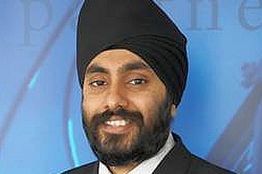
Mr Simranjit Singh, chairman, BioSingapore and director, strategic planning, Asia
Mr Simranjit Singh, chairman, BioSingapore and director, strategic planning, Asia, Quintiles, speaks about the latest developments taking place in Singapore life science and how BioSingapore is involved in these developments.
What is the total number of members of your association? What is the eligibility to become a member of your association?
The total number of BioSingapore's members is 20 corporate members, which included MNCs and local companies, and 600 individual members. We have two types of qualifications to become a member. Corporate memberships are given to Singapore-based biosciences organizations, and they need to pay $1,000 per year. Associate memberships are given to organisations or companies that are based out of outside of Singapore and they need to pay $250 per year. However, organizations that get Associate memberships do not have voting rights.
What are the major developments/activities/achievements of the association in the last two years?
Recognizing the need for the next lap of growth of Singapore's Biomedical Sciences Industry, BioSingapore has refocused its strategy on three broad areas. Firstly, to develop a talent and financing framework by working collaboratively with academia and research institutes to develop entrepreneurship courses for researchers to encourage them to focus on R&D that can translate to useful commercial applications.
In order to create awareness on available financing options, BioSingapore is intending to set up an investor panel comprising of government entities such as SPRING, A*STAR and EDB, VCs, incubators, accelerators and angels to provide mentorship, investment guidance and possibly investments in local companies.
BioSingapore will also assist to nurture and encourage new BMS start-ups by amplifying & aggregating existing programs by various Government entities & business federations. This includes programs such as the GetUp scheme that encourages scientific researchers to be part of a start-up environment and the Action Community for Entrepreneurship (ACE) mentoring program to guide and provide grants for new start-ups.
BioSingapore will also look into driving more regional collaborations for market expansion & co-development opportunities for local start-ups & BMS companies in the region. A directory of profiles of Singaporean companies and their technologies will be put together highlighting opportunities for international collaboration and partnerships. This will enhance the reputation and brand equity of Singaporean Biomedical Sciences companies in the region.
What are the major developments and changes in the field of bioscience that have happened recently in the country?
The biomedical sciences manufacturing output has already increased four-fold from $5 billion (SGD 6 billion) per year in 2000 to $22 billion (SGD 27 billion) in 2011. Furthermore, 22 percent of the total manufacturing value added is derived from biomedical sciences.




